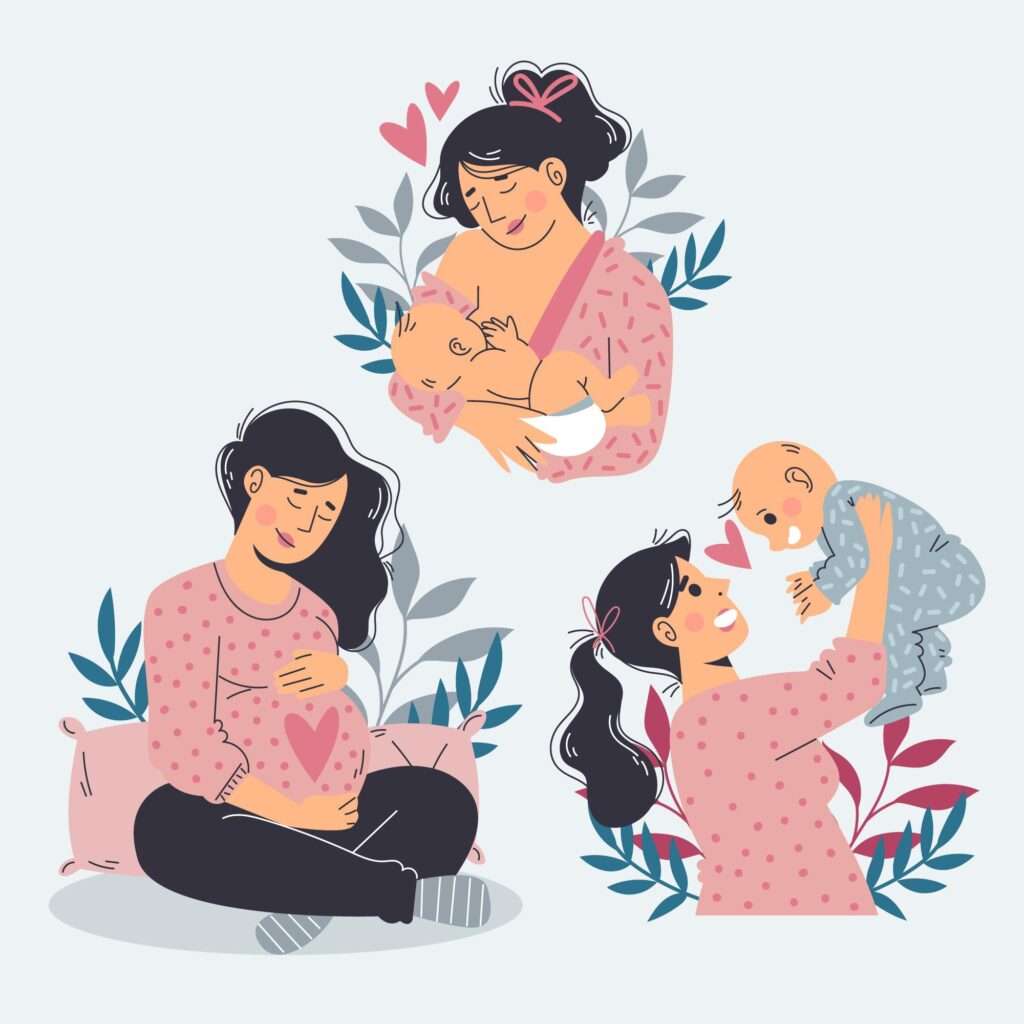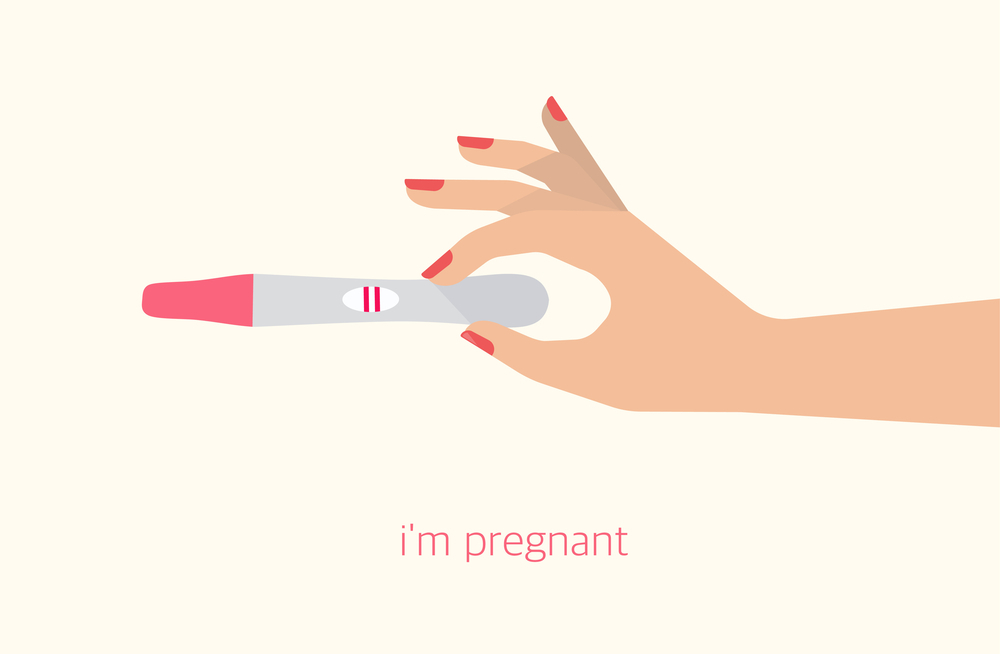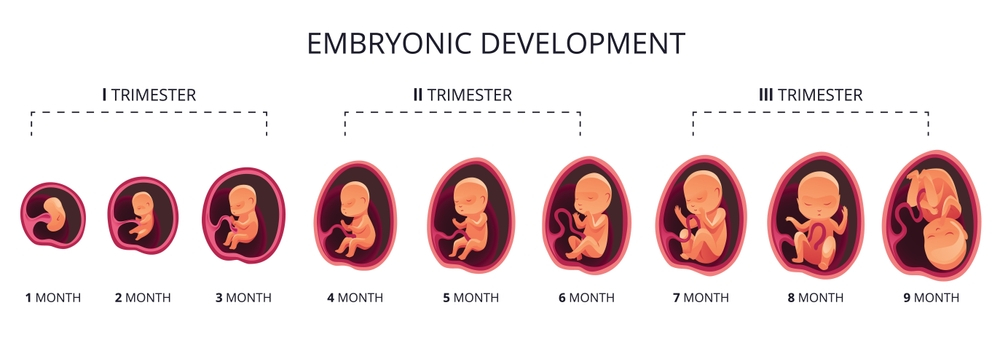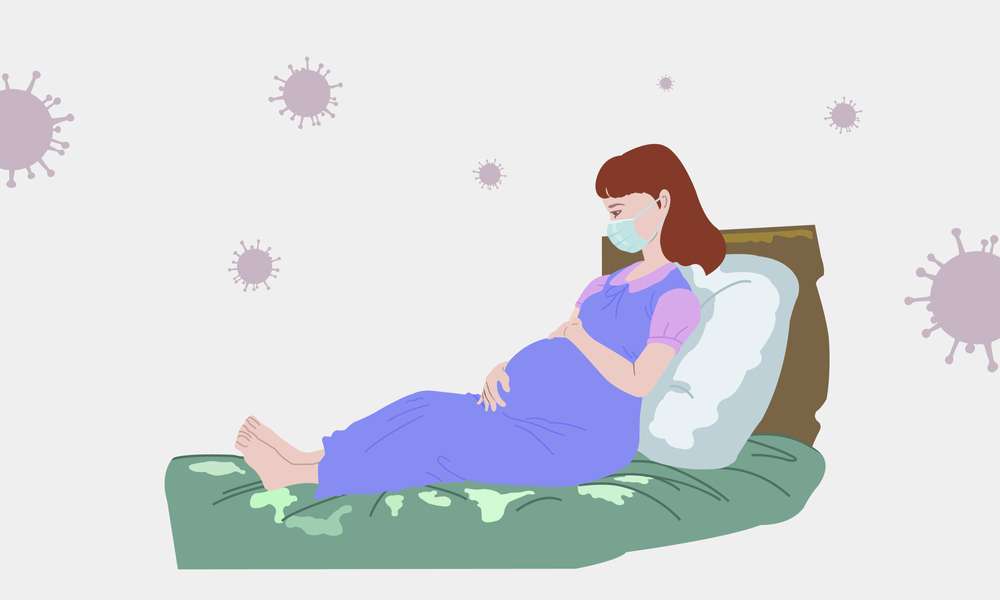Pregnancy
Pregnancy is the period which a treated egg structures into a child in the women’s uterus.It begins when a sperm cell fertilize an egg cell, creating a zygote.It generally occurs in the fallopian tubes.It is a transformative and meaningful journey in a woman’s life. From the initial excitement of discovering the pregnancy to the final arrival of the new family member, the entire process is marked by physical, emotional and psychological changes.The aim of this article is to provide a comprehensive guide to pregnancy that covers various aspects and provides valuable information to expectant mothers and their partners.
Understanding pregnancy
The process of pregnancy begins with the fertilization of an egg by a sperm,which leads to the formation of an embryo.In the vast majority of cases,this embryo implants into the uterine wall,where it develops into a fetus over the next nine months.It is important for expectant parents to understand the basic biology of pregnancy.
Prenatal care
Prenatal care is essential to ensure the health and well-being of the mother and developing fetus.Regular check-ups with a doctor, a balanced diet and taking prenatal vitamins are important parts of prenatal care.These visits also provide an opportunity to discuss any concerns or questions you may have about your pregnancy.
Emotional and psychological changes
healthy lifestyle choices
It is important to maintain a healthy lifestyle during pregnancy.This includes eating well, exercising regularly and avoiding harmful substances such as alcohol and tobacco.Hydration and adequate rest are also important for the mother’s well-being and the baby’s development.
common pregnancy symptoms
Many women experience a variety of symptoms during pregnancy,including morning sickness, fatigue, and back pain.Understanding these symptoms and learning to manage them can make your journey more enjoyable.
Labor and Delivery
As pregnancy progresses, pregnant women need to prepare for childbirth.For a peaceful and conscious birth, it is important to know the different stages of labor, pain management options, and birth preferences.
Time after birth
Pregnancy does not end with the birth of the child.The postpartum period, often referred to as the “fourth trimester,” brings its own challenges and changes.Mothers need to focus on recovering after birth, bonding with their newborn, and seeking support when needed.
Assistance systems
Support from family, friends and healthcare professionals is invaluable during pregnancy.Expectant parents should build a strong support system to help them navigate this transformative journey.
Unusual situations and complications
While many pregnancies go well,some may experience complications such as gestational diabetes, preeclampsia,or premature birth.In these cases,it is important to understand these potential challenges and work closely with healthcare professionals.
Pregnancy resources
The digital age has made access to information easier than ever.There are numerous resources, books, and apps available online to help expectant parents track their pregnancies,connect with other parents, and find answers to their questions.

Pregnancy Period
The period is divided into three parts.Each part consists of three months called a trimester.Different changes occur in a women’s body in every trimester.
1st trimester:
This is the critical period of fetal development.The risk of miscarriage in this period are very high, so caution is requried during this period. In this trimester women’s feel morning sickness. fatigue and breast tenderness.
2nd trimester:
In this trimester the movement of the could be felt in the stomach.this period is comfortable for some women’s.
3rd trimester:
In this trimester increased movement of the baby in the womb.Feeling hotter than normal days.Itching in the body,especially on the abdomen.Abdominal movements similar to childbirth.Even if the time of delivery is still far away.
Some Important Signs of Pregnancy
- Not menstruating.
- Frequent need to urinate. (This sign appears when the embryo takes its place in the uterus.)
- Fatigue: Fatigue is very first sign of pregnancy. this is due to the presence of a hormone in a large amount in the body.
- Nausea and weakness are felt in the morning or evening.
- Swelling and hardening of the breast.
Pregnancy test
How do you know if you are pregnant?Crawl or take the test. Nowadays, tests are readily available at medical stores.There are usually two ways to test : You can test at home. You can contact any laboratory or doctor.The first sign of pregnancy is the absence of menses. But remember that pregnancy is not always the cause of menstrual cramps.So, you can find out the pregnancy crawl or take the rest.
Symptoms of Pregnancy
Some symptoms and indicators might appear even before you take a pregnancy test. Some will show up weeks later due to fluctuations in your hormone levels.
Missed Period
One of the first signs of pregnancy and possibly the most well-known one is missing your period. But, especially if your cycle is erratic, missing your period does not always indicate that you are pregnant.Other than pregnancy, a number of medical conditions can result in a delayed or absent menstruation.
Headache
Early pregnancy is a common time for headaches. Usually, they are brought on by elevated blood volume and changed hormone levels. If your headaches are extremely painful or don’t go away, see your doctor.
Spotting
Some women may experience light bleeding and spotting. The most common cause of this bleeding is implantation. Usually, one to two weeks after fertilization, implantation takes place. Infections or irritations are examples of relatively minor conditions that can cause early pregnancy.
Bleeding
The latter frequently affects the cervix’s surface, which is extremely delicate during pregnancy.Additionally, bleeding may indicate a serious pregnancy complication like placenta previa, ectopic pregnancy, or miscarriage. Never hesitate to call your doctor if you have concerns.
Weight gain
Aim for a weight gain of one to four pounds during the first several months of pregnancy. You start to notice weight gain around the start of your second trimester.
hypertension during pregnancy
Heartburn
The esophageal-gastric valve can occasionally relax due to hormones released during pregnancy. Heartburn may occur from stomach acid leaking out of the stomach.
Constipation
Early pregnancy hormone changes can cause your digestive system to slow down. You can consequently experience constipation.
Cramps
You might experience a pulling sensation similar to menstrual cramps as the muscles in your uterus start to stretch and expand. Spotting or bleeding in addition to cramps may indicate an ectopic pregnancy or miscarriage.
Back Pain
The two main factors contributing to back pain in the early stages of pregnancy are hormones and muscle strain. Your shifting center of gravity and increased weight later on could exacerbate your back pain. Approximately 50% of expectant mothers report experiencing back pain during their pregnancy.
Anemia
Lightheadedness and dizziness are symptoms of anemia, which is more common in pregnant women.Low birth weight and premature birth are two outcomes of the condition. Typically, prenatal care includes anemia screening.
Depression
Pregnant women who experience depression are between 14 and 23 percent of all pregnant women. Your numerous physiological and psychological changes may be contributing factors.
Insomnia
Another typical sign of early pregnancy is insomnia. Hormonal fluctuations, physical discomfort, and stress can all be contributing factors. You can achieve restful sleep with the aid of yoga poses, a healthy diet, and sound sleeping practices.
Breast changes
Among the first obvious symptoms of pregnancy are changes to the breasts. Tender, swollen, and generally heavy or full breasts can appear before you’re far enough along for a positive test result. Additionally, the areolae may darken and your nipples may enlarge and become more sensitive.
Acne
Acne is a common side effect for many women due to elevated androgen hormones. These hormones have the potential to clog pores by making your skin more oily. Pregnancy acne typically goes away after the baby is born and is only temporary.
Vomiting
ne of the symptoms of “morning sickness,” which is common and typically manifests within the first four months, is vomiting. Often, morning sickness is the first indication that you are expecting. The primary cause is elevated hormones during the early stages of pregnancy.
Hip pain
Hip pain is typical during pregnancy and tends to get worse toward the end. There are several possible causes for it, such as:
- Applying force to your ligaments
- The sciatica
- Alterations to your posture
- An enlarged uterus
Diarrhea
Diarrhea and other digestive issues are common. A shift in diet, increased stress, and hormone fluctuations are all plausible causes. Make sure you don’t become dehydrated by contacting your doctor if your diarrhea persists for more than a few days.Pregnancy can be stressful, even though it’s usually a happy time. Significant changes to your body, relationships with others, and even finances are inevitable with a new baby. If you start to feel overburdened, don’t be afraid to ask your doctor for assistance.
Note
- It’s not advisable to base your pregnancy suspicions exclusively on these symptoms and indicators. Confirming a potential pregnancy can be done with a home pregnancy test or by visiting your doctor for laboratory testing.
- Premenstrual syndrome (PMS) is one medical condition that can cause many of these signs and symptoms. Find out more about the early signs of pregnancy, including when they will start to show up if you miss your period.
Tips for doing test at home
Whether you do test at home or in a lab, the basic procedure is usually the same.But by doing the test at home you can get the following benefits.
- It is cheaper than laboratory.
- You can avoid the inconvenience and expense of visiting the laboratory.
- You can do the test at home in private without telling anyone and avoid the mental confusion if the test is not positive.
- Although the method of doing test at home is very easy, but the instruction on the packet are not read carefully, the rest of pregnncy test may be wrong.
- Sometimes even after following the procedure completely, the test result may be wrong yes, but it happens very rarely.

What is a pregnancy test?
When pregnancy occurs, certain types of hormones are produced in a women’s body.These hormones are also found in the urine of women. A test actually shows the presence or absence of these hormones. A pregnancy test usually consists of a strip that is dip in urine to check. Its complete procedure is listed on the packet.Different companies’ test may vary. so,we all have the same basic procedure, and it is very simple.
After the first day of your missed period, home pregnancy tests become extremely accurate. See your doctor as soon as possible if the results of a home pregnancy test come back positive. Your pregnancy will be confirmed and dated with the use of an ultrasound.
Human chorionic gonadotropin levels in the body are measured to determine pregnancy (hCG). hCG, also known as the pregnancy hormone, is released during implantation. It might not be noticed, though, until after you miss a period.
- A missed period causes a sharp rise in hCG levels. One can test for hCG in the urine or the blood.
- Urine tests are identical to those you can take at home and can be obtained at a doctor’s office.
- A laboratory can be used to conduct blood tests. Home pregnancy tests are not very accurate compared to hCG blood tests. The distinction is that as early as six days following ovulation, blood tests may be requested.
How to find the expected date of birth (EDD)?
In this way,you cannot know the exact date of birth because each child’s birth date is determined by GOD, but you can estimate the birth of your child.This is called Expected Date of Delivery or EDD.A week before or after the due date obtained in this way can also be born.
Pregnancy Calendar:
Pregnancy is 40 weeks after the start of your last menstrual period.you can also create a calendar to find the EDD.Through this calendar, you can also find out in which stage of pregnancy the baby is now and what problems you may face in this stage, as well as what precautions are required.For example, the risks of miscarriage are usually very high in the first the months of pregnncy,so caution is needed during these months.
How to make a Calendar?
To make a calendar you need to note down the day apart from the date so that you can easily count the months.For example,if your last period starts on January 6th and the day falls on a Friday, it will be a week on the following Friday. In the same way four Fridays i.e., four weeks will be added to one month.Also,if you don’t notice that your period date is January 6th,then the next May 6th will be an alleged one because the days of each month of the year are different, one month is 30 days and another is 31 days.The menses cycle consists of 28 days.




Feeling pain in the womb and hot urine its been four days without feeling the movement of the child
A pregnant women also may have urine that’s hotter than normal. This is because a women’s body temperature naturally increases during pregnancy.
How many months pregnant are you?